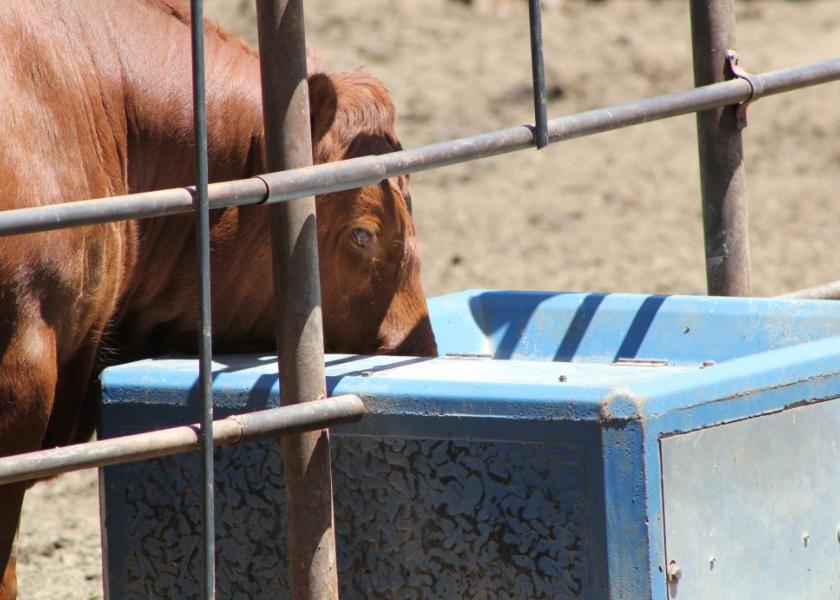Hot Weather Means Cattle, Like People, Need More Water

Just like humans, livestock are negatively impacted by poor water quality. Cattle that drink poor-quality water will drink less water and have a diminished feed intake, resulting in reduced average daily gains and return on investment.
Cattle that drink less water due to the water’s poor quality are also more prone to heat stress and will spend more time in ponds or shade rather than grazing and gaining weight.
Ideally, clean groundwater is the best source of water for cattle. Use of wells and water lines with water troughs or use of portable water tanks also provide clean water for cattle. Surface water, or water from ponds and streams, is most often the primary water source for cattle. Ponds and streams can be used effectively in a livestock operation, but both sources can be impacted by poor water quality very easily.
Regardless of the water source, there are physical and chemical properties to monitor and consider.
Water Temperature
Cattle prefer water at temperatures between 40 degrees Fahrenheit and 65 F. When water reaches temperatures above 80 F, water and feed intake decrease. Groundwater maintains a stable temperature ideal for cattle. If groundwater is pumped into storage tanks that sit in direct sunlight, shading should be considered. Shallow ponds and streams that are not shaded will quickly increase in temperature in the summer months and impact cattle performance.
Excess Nutrients
An excess of nutrients is one of the most common sources of problems in livestock water quality. Cattle that are allowed to wade in ponds and streams will urinate and defecate in the same water they are drinking. This buildup of nutrients results in pond algae blooms, nitrate toxicity and high mineral levels.
Blue-green algae buildup is common during drought conditions in summer months. When these algae die, release of the toxins can cause injury and death to cattle.
Nitrate toxicity is a common problem with forages, and nitrates in surface water due to excess nutrients can exacerbate the problem. Excess manure or fertilizer runoff, or animals directly adding nutrients to the water, can result in nitrate buildup. Nitrate toxicity can result in reduced oxygen-carrying capacity in the blood stream, and acute nitrate toxicity can quickly kill cattle. Chronic nitrate toxicity results in reduced feed intake and performance in cattle.
Mineral levels, especially sulfur, iron and manganese, can build up and reduce water intake due to foul odors. These excess minerals also impact normal mineral absorption and even result in deficiencies in minerals, such as copper and zinc.
To avoid these issues, restricting cattle’s access to surface water while still providing water to those cattle, is critical. Fencing in ponds can reduce cattle’s loafing in ponds, which reduces sedimentation and nutrient loading. Water can be piped out of the pond to cattle, which can mitigate risks. Limited pond access can also be provided by allowing just enough room for cattle to reach the water in the pond without allowing wading and defecating in the pond.
To determine water quality and its possible impacts on cattle, water testing is available through your local University of Georgia Cooperative Extension office. Test results can be provided, along with recommendations and strategies to help improve cattle gains and performance. Call 1-800-ASK-UGA1 to learn more.
Source: University of Georgia Cooperative Extension







